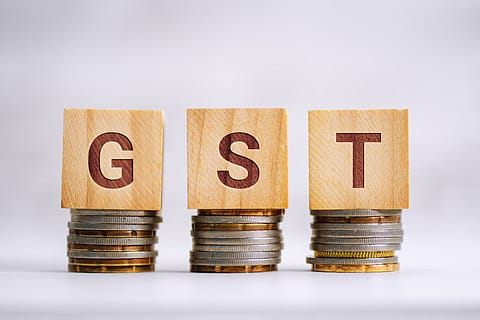29,273 bogus firms evaded tax worth ₹44,015 cr in 2023
In the December quarter alone, 4,153 bogus firms were involved in suspected ITC evasion of ₹12,036 cr

As many as 29,273 bogus companies involved in suspected input tax credit (ITC) evasion worth ₹44,015 crore were detected in a drive against non-existent taxpayers by the finance ministry's Goods and Services Tax(GST) formations since May 2023, the government has said.
A total of 121 have been arrested in these drives so far, and the government saved ₹4,646 crore, of which ₹3,802 crore was recovered by blocking ITC and ₹844 crore by way of recovery.
To curb frauds in GST and increase compliance, the GST formations under the Central Board of Indirect Taxes and Customs (CBIC) and state/UTs are carrying out drives on the issue of non-existent or bogus registrations and issuance of fake invoices without any underlying supply of goods and services.
In the quarter ending December 2023 alone, as many as 4,153 bogus companies that involved suspected ITC evasion of around ₹12,036 crore were detected; 2,358 of these bogus firms were detected by the central GST authorities.
The government estimates suggest this has protected revenue of ₹1,317 crore, of which ₹319 crore has been realised and ₹997 crore has been protected by blocking ITC. A total of 41 persons were arrested in these cases, including 31 by central GST authorities.
In Q3, the top three states where a maximum number of bogus companies have been detected are Maharashtra (926), Rajasthan (507) and Delhi (483). The highest tax evasion worth ₹3,028 crore was suspected in Delhi, followed by Maharashtra (₹ 2,201 crore) and Uttar Pradesh (₹1,645 crore). The ITC amount blocked or recovered by various formations stands at ₹374 crore in Tamil Nadu, ₹235 crore in Telangana, and ₹102 crore in Maharashtra. The fake companies per lakh registered firms stand the highest in Haryana at 81, followed by 61 in Delhi and 59 in Rajasthan.
The finance ministry says it has taken various measures to strengthen the GST registration process, including pilot projects of biometric-based Aadhar authentication at the time of registration in Gujarat, Puducherry and Andhra Pradesh.
Recommended Stories
Other steps taken to tackle tax evasion are sequential filing of GST returns, system-generated intimation for reconciliation of the gap in tax liability in GSTR-1 & GSTR- 3B returns and of the gap between ITC available as per GSTR-2B & ITC availed in GSTR-3B returns, use of data analytics, and risk parameters for detection of fake ITC.
Taxpayers are allowed to take credit of taxes paid on inputs (input tax credit), as self-assessed, in their return. They can take credit of taxes paid on all goods and services, other than a few items in the negative list, and utilise the same for payment of output tax. Credit of taxes paid on inputs can be taken where the inputs are used for business purposes or for making taxable supplies.
The time limit for claiming an online refund is two years, and the refund is granted in 60 days from the date of receipt of a complete application. For mismatched invoices, reversal and reclaim of input tax credits are done electronically on the GSTN portal without any taxpayer contact. The also prevents input tax credits from being taken using fake invoices or twice on the same invoice.